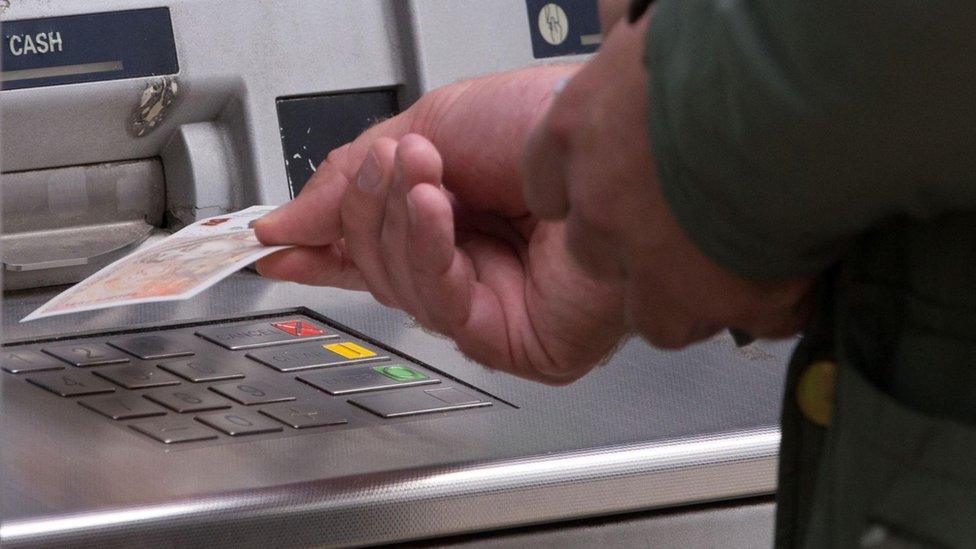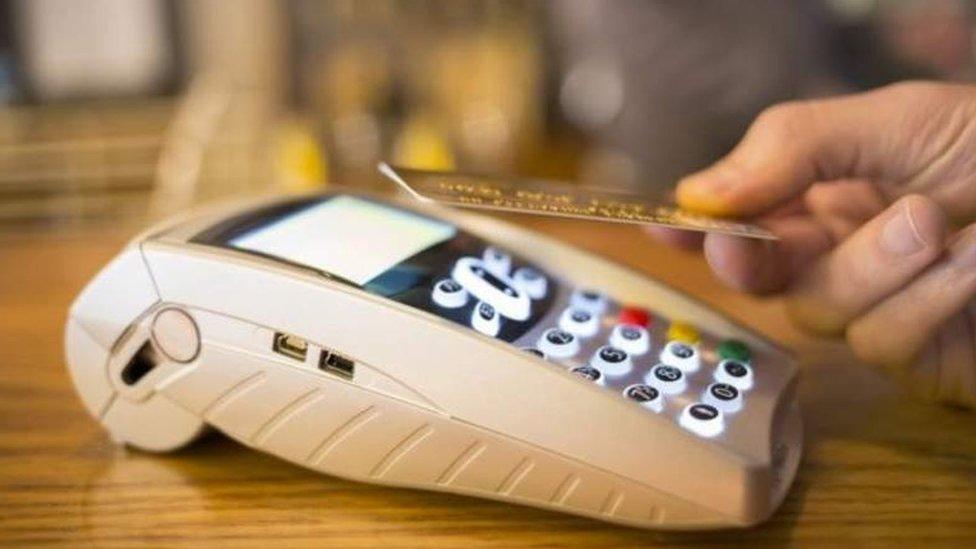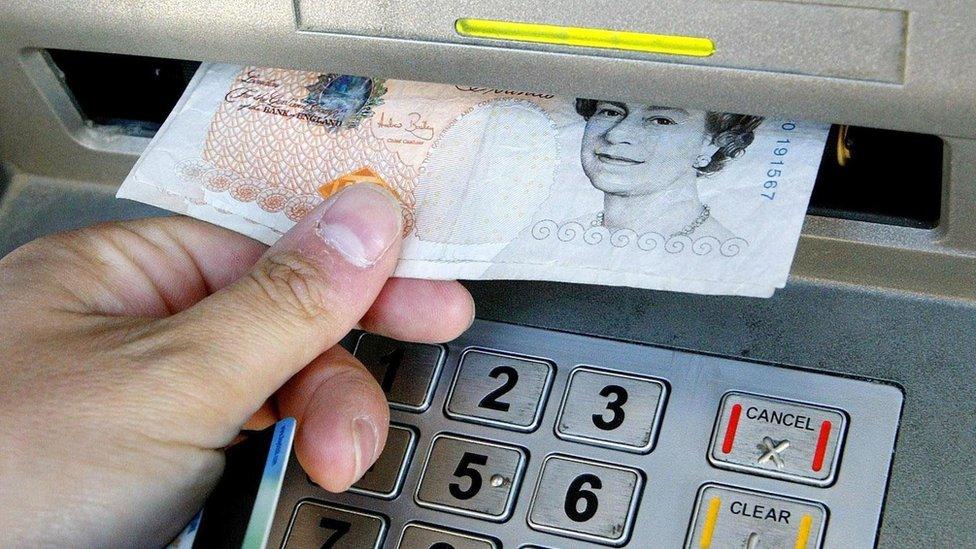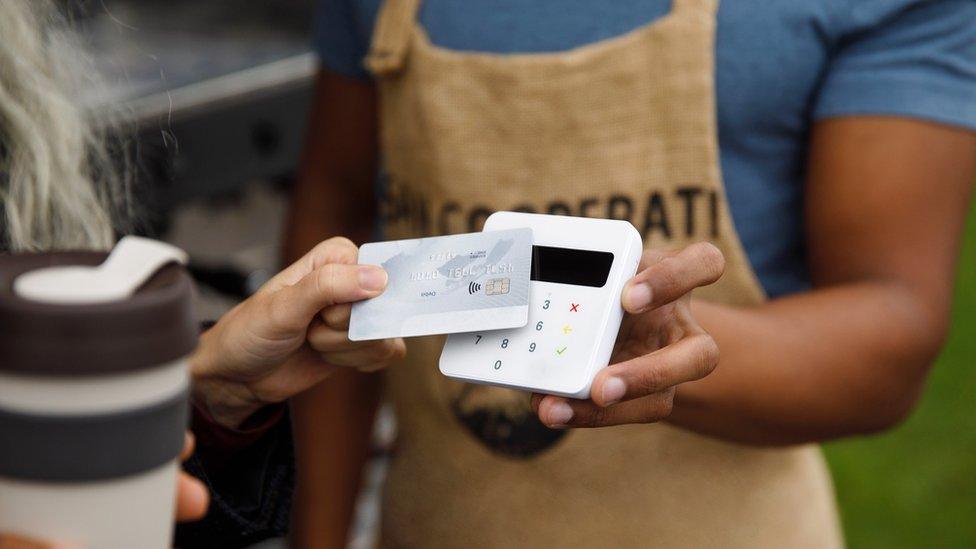Cash access scheme trial to run in Millisle
- Published

A pilot scheme to test solutions to ensure local communities retain access to cash has launched in Millisle, County Down.
The Community Access to Cash Pilots (CACP) will run until October before reporting their findings.
Accessing cash has become difficult for some rural areas due to bank branch closures.
Cash withdrawals have fallen during the pandemic and there are fewer free cash machines.
Nine locations across the UK will have tailored services introduced as part of the scheme.
Privacy and security
In Millisle there will be a dedicated space in the local community hub for people to access their online banking, with support from volunteers.
The bank hubs will also provide access to face-to-face community banking services, provided by those banks which have the most customers in each area.
This aims to support the customers of all major banks and allow the privacy and security people expect in a bank branch.
Local businesses should offer cash back with purchase as part of the pilot.
Consumers will also see the introduction of a service which allows them to store change on a card or mobile app to assist with saving and also help retailers manage small change.
Post Office 'almost acts as a bank'
Jo Scott, who works with community groups in Millisle, told the BBC's Good Morning Ulster programme the nearest bank is in Bangor or Newtownards.
"The nearest bank for us is seven miles away which is quite the distance," she said.
"We've been recruiting our local businesses and signed up a quarter of them to take part in this pilot. This means when you make a purchase you can get cashback if you want.
"We are also running educational programmes which could help people with digital banking and get online.
"Our Post Office has been streamlined which means it almost acts as a bank now as people can deposit and withdraw cash."

Contactless payments have become more prevalent during the pandemic
CACP is chaired by Natalie Ceeney, who is behind the Access to Cash Review which was published in 2019,, external before the pandemic.
She said more people were moving towards contactless payments, even for items that they would have used cash for before the pandemic.
"However, cash remains critically important, not only as a back-up when payment systems go down, but for millions of people who can't use digital payments, don't have reliable broadband or mobile coverage or simply don't have access to wider banking services that many of us take for granted," Ms Ceeney said.
"These pilots are important, but it is more important action is taken to sustain cash for the longer term.
"As communities across the UK have already seen, once infrastructure is gone, it is very difficult to replace."
Recent research from the Financial Conduct Authority shows that 15% of UK adults struggled to cope without access to bank branches and cash machines during the pandemic.
Others also found it difficult as some businesses stopped accepting or discouraged the use of cash payments.
The research suggests that five million people remain dependent on using cash.
Related topics
- Published12 May 2019

- Published3 March 2021
